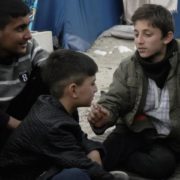Was there a coup in the Vatican? Perhaps not, but there is proof that for the first time ever the Pope is a global leader.
It is civil war in the Vatican! These days, that is the refrain in the international media following the wondrous allegations by ex-ambassador Archbishop Carlo Maria Viganò against Pope Francis. The press is on fire with the story; yet Pope Francis said, and his secretary of state Cardinal Parolin repeated, that he is serene and unperturbed.
This is certainly because he is at peace with God, but it is possibly also because he knows that the revolution he started in the Church, if it is real, it will break a little crockery. So there is nothing special here.
What is really new – and it is the first time in the history of the world – is that news about the Holy See has gained instant global interest. TV and Internet around the world are reporting about this “clash” in the Holy See as if it were of interest to them. In the past, Vatican news was important only in the Western, Christian world and in particular in countries with Catholic majorities. The rest, the vast majority of the world, simply ignored it because it didn’t understand and was not interested.
Moreover, in the USA – where for centuries Catholicism was the fringe religion of “papists”, and the faith of rowdy minorities converged into mainstream WASP culture – coverage of this “civil war” is front page news everywhere. This is despite the fact Catholics are only about 30% of all Americans.
Then, the fact that the for the first time in history the whole world is following Viganò’s allegations proves the importance of the Pope and of his Church. This should be reason enough to thank Viganò for his help to the Church and to the Pope: he managed to draw attention and underline the importance of Francis. In some ways, it is perhaps a like in the end Judas fulfilled his mission in the betrayal of Jesus, without which he couldn’t die on the cross and show to all men he was truly the Christ.
As for Viganò’s allegations, everybody is left wondering what to believe. Viganò took two solemn oaths, as Archbishop and as Nuncio, to be loyal to and discreet with the Pope. With his statement, he has betrayed both, and by so doing, he has tainted whatever he said. How and why should we believe someone who is twice a traitor?
Viganò’s and his fellow acolytes should first explain this, which he didn’t. Moreover, there is the puzzling account that Viganò reported to Francis something about Cardinal Theodore McCarrick (the “villain” of the story because he molested young seminarians and covered up abuses). McCarrick was appointed and shielded by two other Popes, John Paul II and Benedict XVI. Why then is Francis guilty and when his predecessors were innocent? There is no clear answer.
The overall sense is not only that Francis is a saint (which perhaps he is as it is emerging in all of this, and again one should thank Viganò for it), but also that McCarrick is, despite his many sins and all his guilt, a convenient scapegoat for something that goes well beyond the scandal of sexual abuse that has been plaguing the Church for decades.
Actually, Viganò’s statement de facto brings to an end the sex abuse scandal in the Church. In fact, it is clear from the news following this story that nobody is really interested in what Francis had to do with covering up the abuses, something for which there is nothing solid to see despite days of “revelations”, but rather it is about the clash of a Bishop, supported by some other clergy, against the Pope.
The kernel is not the sex scandal, but how trustworthy is one, the Pope, or the other, the Archbishop? Who is winning there? People who are not blind can see by themselves, again, thanks to Viganò.
With all this, the story sounds farcical because there is no religious element, not actual elements of faith involved, and perhaps the Pope’s opponents shot themselves in the foot showing how weak is their hand. Yet it is no farce, and although it is not about religion, it is about power and the political conception of the Church. It is about two opposite views of the Church: one that strives to keep a distance from the civil power, although it has to deal with it; and the other that de facto considers the Church a power among powers, perhaps a superpower, to which other political powers have to bow.
After the end of the Reformation, in the following centuries the Catholic Church declined in power and influence in the world. It came back during the Cold War, and especially with Pope John Paul II because of an instrumental alliance with the western front against the anti religious Soviet Empire. Yet, with the end of the Cold War, where is now the Church? With Pope Benedict XVI it strengthened its religious and theoretical core and with Pope Francis it “applied” this core worldwide, not only to Catholic in the catholic sphere, to social issues which have a political impact in a situation of deep crisis.
This world is extremely intricate, and it is unclear what center and what is periphery, or what each stands for. Here the Church position is difficult to manipulate one way or another. But because of the new reach of the Church many are eager to manipulate it.
Moreover, pope Francis, in his book with Hernan Reyes Alcaide LatinoAmérica, stressed the importance of following and listening to the people of the Church and not to the clergy. The people are the Church, not the haughty priests pretending to care about the people but mainly attending their own mundane interests.
This is the essence of the Pope’s recent accusations against clericalism, the bureaucratization of the Church if we want to explain in plain English. Clericalism is at the root of the sex scandal because when something happened the clergy was not concerned with the victims, but with preserving the wellbeing and good name of the clergy.
That is, the clergy confused themselves with the Church, which is the body of people. The clergy are servants of the Church; they are not the Church, stressed Francis. The sexual abuse scandal has brought this important issue to the fore, and this is extremely useful and important.
But even if this is true, for centuries the Church also was the clergy, which consciously or not considered its flock not something to be protected and cared for, but something to be fleeced and milked, one way or another.
Yet the “fleecing” and “milking” was not all just exploitation; it was also harnessing the strength of the Church to expand and survive. That is, it is not that the clergy is bad per se, or that priests ought to defrock themselves. In some ways it is like civil servants in a state: they are paid by the tax of the people, and by so are servants of the people. They become corrupt only when they put their wellbeing before the wellbeing of the people they serve.
The clergy for centuries has been a structure that allowed the Church to survive and carry on its duties, but there must be a balance. “Over-milking” kills the sheep, and thus it kills the Church. In fact, the Pope carries on wearing his white robe – he didn’t give it up.
Moreover, harnessing people has social and political fallouts because different social and political groups have and always will have direct or indirect interests in it for their own goals.
Therefore, the real issue here is politics: the power of the clergy, and its limits, and thus the power of the power centers benefitting from the old practices and now losing out with the new regime. There are power centers in the world that thrived on the old model of the Church more centered on the clergy, and they are losing out with the present shift, keener on listening to the people.
Here everything becomes very complicated. Whereas seeing the problem can be easy, solving it practically can be very difficult, because it is not religious but perhaps highly political, where the Church must be extremely prudent.
The Church, which with Francis is reaching out to all Christians, to believers of all faiths, and to all men, cannot reject and cast out part of its clergy as if they were fallen angels who confessed their support for child abuse in their opposition to the Pope.
The Church is made up of sinners and of losers, not of winners or holy men. By definition, whether one believes or not, Jesus went to the cross because we’re all sinners. So, the Catholic Church is made of people who make mistakes.
There are no angels, fallen or not, and the real issue perhaps is not how to wage a war against the Pope’s enemies, but how to reach out for them, how to build bridges with them, and how to take into account their reasons, because the Church can’t reach out to the new world while losing the old part.
Furthermore, the Church can’t be summed up with an easy right-left divide, because it is beyond this division. Yet for hundreds of years, it learned to navigate between right and left.
In all of this, there is the crux of the negotiations between the Holy See and China. There is religion and there is politics, and although in principle the two do not touch, in practice there is a lot of gray area. Some in the Church asked that China grant total freedom to the Church, whereas since John Paul II, the Holy See has chosen to be prudent, taking into consideration local sensitivities and local power realities.
In America and in the world, the concrete incidents are different, but the principle is the same. In the USA, bishops and clergy managed to survive by making choices in their own realities, just like the Chinese clergy did in theirs. With hindsight, many choices were wrong. The Church will have to pay dearly for that, and rightly so, but we are all sinners and nobody has perfect vision.
Civil authorities can choose to prosecute crimes as they see fit. The Catholic Church is different: it believes in forgiveness and understanding, and that in all bad there is also good, as one can paradoxically see with Viganò’s statement – perhaps truly a blessing in disguise for the Pope and the Church.
As for the rest, there is the delicate issue of political management of the Church, of its global reach, and the relationship with civil authorities. This will become more complicated as time goes by and as the trend of global reach of the Church grows.
Therefore, regardless of future issues, the Church will become more controversial and subject to more pushes and pulls by all authorities and political and economic centers. With this, yes, Viganò’s statement is just the beginning of a new set of frictions between the Church and secular powers.
Yes, after all, this is the history of the Church, but its scale and scope now is totally different. For this the Church, and the world, must prepare.






Grazie per aver creato questo blog
Archbishop Vigano took a far more solemn vow to God, that he would remain true to the teachings of Jesus Christ and His church. This vow trumps anything made to men, and the alleged actions that reported put several vows in opposition to one another. But his vow to fidelity to Christ and His church must always take precedent over all other when they are in opposition. I am sorry but your argument does not stand up. The church, her people deserve to know the truth about Archbishop Vigano’s allegations and if true, the offenders should do what is right and holy in God’s sight; resign, regardless of their title for the good of God’s people.
Weak stuff. Lack of realism, lack of analysis. This is a terrible crisis for the church and the fact that it is arousing interest outside it is not surprising or new. Archbishop Vigano may or may not have acted improperly or unwisely but this sort of kneejerk defensiveness does nothing to lessen the seriousness of the situation. It would be terrible if Francis creates a ‘new church’ since such a thing would undo two thousand years of Catholic faith and erode the credibility of the church. The Protestant ‘Reformation’ splintered and fragmented Christianity, it did not lead to a renewed faith but to the gradual erosion and disappearance of it.
I don’t agree! The analysis is substantiated and convincing, but if you are hostile to pope Francis it isn’t. If so, you fear the danger of a new church. In fact nothing is far from the truth. Francis wants to change the church only to respond to the needs of the people in our present time. Conservative clerics and their followers stand for a church that never changes so every change is considered a treason of the tradition